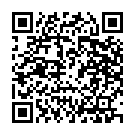講座題目:New Paradigm: AutomatedTransportation Systems(新模式:自動(dòng)運(yùn)輸系統(tǒng))
時(shí)間:2014年11月19日13:30-14:30
地點(diǎn):交通運(yùn)輸學(xué)院報(bào)告廳
主講人:美國(guó)新澤西理工大學(xué)土木與環(huán)境工程系交通規(guī)劃教授 劉榮芳
劉榮芳教授現(xiàn)任美國(guó)新澤西理工大學(xué)土木與環(huán)境工程系交通規(guī)劃教授,她在交通行為及需求預(yù)測(cè)模型、公交運(yùn)營(yíng)分析和網(wǎng)絡(luò)模擬、城市與區(qū)域規(guī)劃、土地利用經(jīng)濟(jì)與環(huán)境影響分析方面有豐富的經(jīng)驗(yàn)。她曾為美國(guó)聯(lián)邦、州及地方政府和私營(yíng)公司管理各種長(zhǎng)期交通規(guī)劃及短期設(shè)計(jì)項(xiàng)目。劉教授的豐富經(jīng)驗(yàn)和她在交通界的知名度源于她在中美兩國(guó)的良好教育及其在政府,咨詢公司及高等院校工作的履歷。劉教授不僅積極參與多個(gè)交通研究專業(yè)學(xué)會(huì)的活動(dòng),她還是中美兩國(guó)交通規(guī)劃,城市規(guī)劃及土地利用學(xué)術(shù)交流的早期發(fā)其人之一。
講座摘要:
A few recent developments, such asGoogle’s Driverless Cars, and disputes between car companies and cableproviders, propelled the ‘Automated Transportation Systems” onto a centerstage. It seems that the rapid development in autonomous driving, control andcommunication technologies coupled with exponential growth in smart phones, GPSand navigation systems will usher in a brand new paradigm: a new fleet ofautomated or drivels vehicles, be it passenger cars or buses, will not onlychange the way we travel but the fundamental structures of car ownership andsociety.
Ready or not, the autonomous drivingcars are here and they are here to stay. As transportation planners, engineers,and decision makers are in the process of evaluating technologies, testingprototype vehicles, and developing safety regulations, the general public mayget excited, curious, or sometimes anxious.
Capturingthe momentum of recent critical developments in automated transportationsystems, Dr. Liu’s presentation will provide a comprehensive and systematicevaluation of automated transit technology and its applications. She will alsotry to shed some light on social, economic and environmental impacts of the ATSapplications. Building on the extensive research accumulated more than fourdecades and extensive communications with a large network of professional, shealso tries to identify some potential impact and implications on travelbehavior changes, life style choices, and economic consequences of the new ATSparadigm.
?


